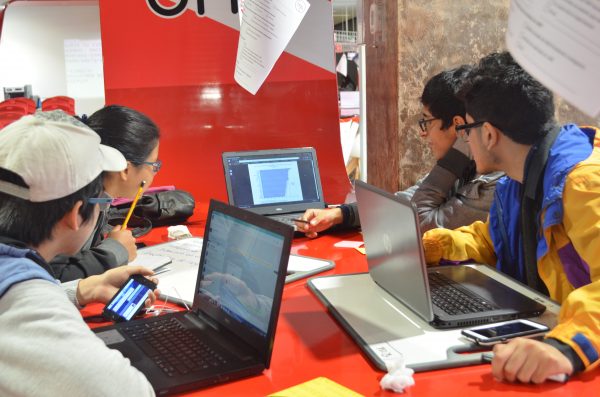
The Made for Her hackaton gathered university students from different fields, with the goal of coming up with solutions based on technology to the different problems that women face nowadays. This initiative was organized by the affinity group IEEE Women in Engineering PUCP, which belongs to the student association IEEE PUCP. We talked to its president, Anghela Alcántara Mostacero, about the organization, development and importance of the event.
What were the objectives of Made for Her?
The general aim was to create a space to generate innovative solutions (programs, apps, websites, etc.) that would contribute to solve different problems that women face. This objective is aligned with Goal 5 of the 2030 Agenda for Sustainable Goals, whose focus is on achieving gender equality and empower women and girls. Likewise, it is also aligned with the 16th Sustainable Goal, which seeks the promotion of just, pacific and inclusive societies.
How important is it to keep developing project proposals like Made for Her?
To me, it is extremely important to keep creating this kind of spaces because they foment the integration of students from different fields, which results in incredible ideas to come up with a solution to the different challenges they have to face. In addition, they get an invaluable enrichment on a personal level, like the enhancement of soft skills such as working in teams, working under pressure, leadership, etc. On the other hand, it is necessary to innovate taking advantage of the existent technological resources, and one way of doing that is through a hackaton.
In a context like Peru’s, how important are this kind of initiatives and the technological proposals that come from them?
Nowadays, women face problems so complex that they are not foreign to society; however, most of them are invisibilized. There are many other problems like this one, and one of the ways to visibilize them is to seek the participation of the members of our community in this kind of events, making them come up with solutions that can be spread and, hopefully, actually be implemented.
Personally and academically, how did it feel to organize and carry out this great initiative?
The initiative came from the affinity group as a whole. Concerning the organization of the event, it was quite a challenge. Dealing with the academic semester and the organization of this even was not easy. However, thanks to the support of some of the volunteers of WIE PUCP, we were able to conduct everything in the best possible way, and I am satisfied with the results. I hope that in the coming semester we will be able to carry out the second edition of the hackaton and that more students get encouraged to participate in an event as fulfilling as this one.
The winners of the event were Valeria Maldonado Avalos, Kevin Vallejo Amado, Adrián Ulloa Coronado and Alexander Giovanni Ríos Peña with their proposal “Empowered Shopping”, an app that seeks to resolve the problem of labor dependency that women go through, as well as the minimum access to training in informatics and management.